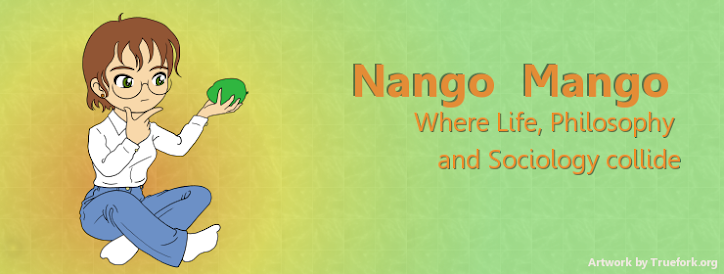There's something of a stereotype out there of sociologists that I'm sure people are at least tangentially aware of. On Saturday Night Live Nora Dunn played a man hating lesbian sociologist, and though this concept was played for laughs it still struck close to home in terms of how many people see the field and the people in it. Mainly, that we are always talking about how the system is oppressive, the patriarchy is the enemy, the little guy needs to stand up, etc. etc. This often gets us painted as far leftists, anarchists, or radicals, and I've had to shake this sort of image off when I talk about my field of study many times before because I am none of the above, my passion for LGBT rights notwithstanding (I actually tend to think of myself as fairly moderate on most issues in the sense of not being militant).
Well, I hate to tell you this, but if that's the way the typical stereotype of a sociologist thinks they aren't following one of the cardinal rules of sociology. It's sometimes easy to forget that sociology is in fact social science, meaning that while there are a number of abstract concepts and theories floating around they are still grounded in the concepts of science, and the sort of political proselytizing that goes on has no place in the discipline. That's not to say that it can't be used, there are in fact many ways to apply it to the real world and use it to push for social change, but the sociologists themselves should not be doing that while presenting it under the guise of science, because it isn't. It's politics and, more to the point, philosophy, which is where my other hat comes in.
A sociologist fundamentally looks at the how and in some cases the why, for instance we can wonder how racism came about and why it keeps existing, but when it comes to actually making any value judgments about it that is out of our league. To put it simply, if we go in looking for an oppressive system we are going to find it, and our results will be skewed. It's impossible to escape this bias completely (we are human after all) but we shouldn't actively look for it either, and this is the mistake so many people make when walking under the banner of sociology. We are not tasked to explain the injustice of someone losing their job to outsourcing, all we do is say why it happens and what happens when it does. As cold as it sounds, we have to remove the person who lost their job from the equation, because we fundamentally are not concerned with the individual, we are concerned with the system he or she lives in.
When you want to talk about injustice that's where philosophy comes in, and that's my other hat. Now I'm very much guilty of crossing the two as well, but at least I'm aware that the two modes of thought are different.
It's my belief that you need both to have a complete understanding of the world. Scientists can sometimes become so detached from the actual people that they can be unethical, while philosophers can lose their grounding in reality and become caught up in abstracts. Both need to compliment the other, but they have to remain a proper distance from each other to keep their integrity.
To put it simply, science is the way to find out about the world, while philosophy looks at the ramifications in an abstract sense. Crossing the two is a mistake, since it compromises what both are supposed to do, and while I can and do apply both to my worldview, I have to switch my hats in order to get the whole picture.
So as the Ghostbusters said, don't cross the streams. In the movie it did work out for the better, but the chances were vastly in favor of it exploding spectacularly.



No comments:
Post a Comment